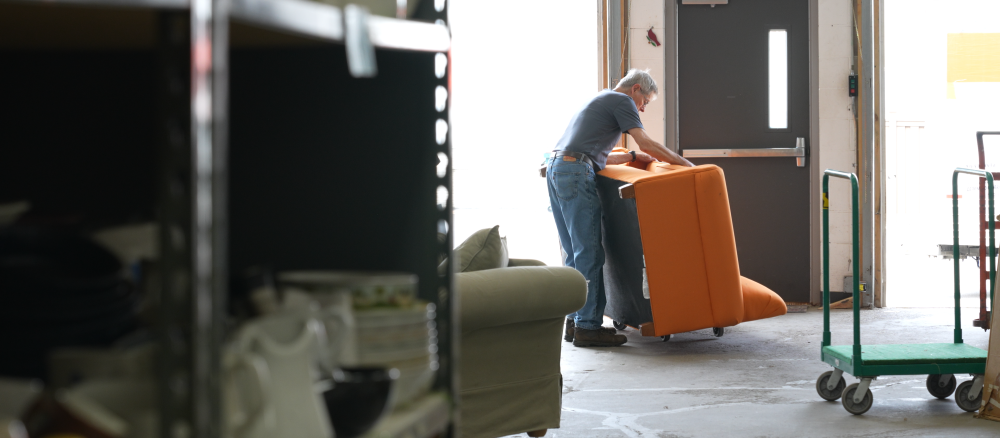Recycling alone can only do so much to keep Minnesota’s already bulging landfills from overflowing, which is why the Minnesota Pollution Control Agency’s proposed Metropolitan Solid Waste Policy Plan also emphasizes the benefits of reuse, an approach that one Twin Cities-based nonprofit uses to help less fortunate households.
Organizations like Bridging are showing what is possible when we think creatively about the lifecycle of our goods. Bridging collects and distributes donated furniture to people who are pursuing housing stability. Each year, Bridging — which has warehouses in Bloomington and Roseville — connects more than 4,600 households with donated and refurbished home goods. In the process, they keep more than 11 million pounds of waste out of Twin Cities landfills each year.
“There’s new, there’s landfill, and there’s a lot in between,” says Diana Dalsin, director of strategic partnerships at Bridging. “The items we save from disposal have an entire life ahead of them. We all need to be more mindful of what we’re throwing away and the value it might hold for someone else.”
Recycling and composting rates across the Twin Cities have remained stagnant over the past five years, with some counties even reporting a decrease in recycling among residents. Almost 3.3 million tons of waste from the metro region ends up in landfills each year and releases harmful pollution into the air, land, and water, even though about two-thirds of that waste could have been reused, recycled, or composted.
The MPCA is in the process of developing the latest version of its Metro Solid Waste Policy Plan, which includes 70 recommendations for improving how the seven-county metropolitan area manages its growing waste problem. The 20-year plan aims to reduce waste across the metro, with special strategies aimed at keeping usable goods out of landfills. These efforts include special grants for organizations like Bridging and fix-it-clinics that repair items from clothes and shoes to electronics.

“To protect our air, land, and water, we must do more to meet our waste reduction, recycling, and composting goals,” says Kirk Koudelka, assistant commissioner for land policy and strategic initiatives at the MPCA. “These goals are ambitious. Meeting them will require deep collaboration between local governments, individuals, and businesses. The first step toward making this a reality is creating a shared plan to guide us forward.”
Once the plan is finalized, the MPCA will help local governments and businesses implement the recommendations to reduce the amount of trash in landfills and achieve a 75% recycling rate by 2030.
To read the full Metro Solid Waste Plan, visit www.pca.state.mn.us/mpp

